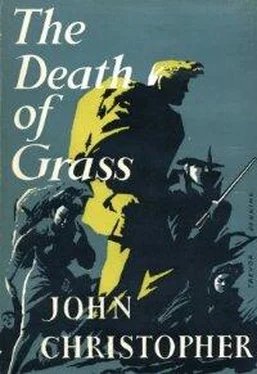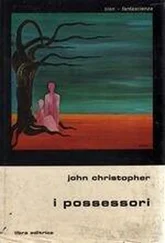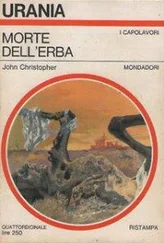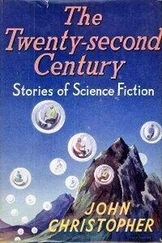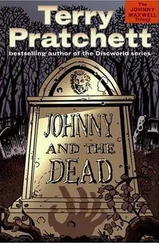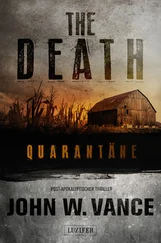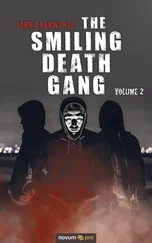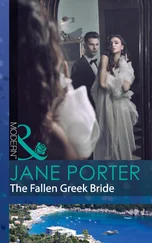Ann said: “He really is a leader. Note the sense of dedication, most striking in the conviction that what he thinks is right because he thinks it.”
John said hotly: “It’s right in itself. Can you find an argument to refute it?”
“No.” She looked at him. “Not one that you would appreciate.”
“Rodge!” He appealed to him. “You see the sense in it, don’t you?”
“Yes, I see the sense.” Almost apologetically, he added: “I see the sense in what Ann says, too. I’m not blaming you for it, Johnny. You’ve taken on the job of getting us through, and you have to put that first. And it’s Pirrie who’s turned out to be the one you could rely on.”
He was about to reply argumentatively when he caught sight of their three faces, and memory was evoked by the way they were grouped. Some time in the past they had been in much the same positions—at the seaside, perhaps, or at a bridge evening. The recollection touched in him the realization of who he was and who they were—Ann, his wife, and Roger and Olivia, his closest friends.
He hesitated, then he said:
“Yes. I think I see it, too. Look—Pirrie doesn’t matter a damn to me.”
“I think he does,” Roger said. “Getting through matters to you, and so Pirrie does. It’s not just his usefulness. Once again, Johnny, I’m not criticizing. I couldn’t have handled the situation, because I wouldn’t have had the stamina for it. But if I had been capable of handling it, I would have felt the same way about Pirrie.”
There was a pause before John replied.
“The sooner we get there the better,” he said. “It will be nice to become normal again.”
Olivia looked at him, her shy eyes inquiring in her large placid face. “Are you sure you will want to, Johnny?”
“Yes. Quite sure. But if we had another month of this, instead of another day to face, I wouldn’t be so sure.”
Ann said: “We’ve done beastly things. Some of us more so than others, perhaps, but all of us to some extent—if only by accepting what Pirrie’s given us. I wonder if we ever can turn our backs on them.”
“We’re over the worst,” John said. “The going’s plain and easy now.”
Mary and Davey came running in from the bathroom. They were laughing and shouting; too noisily.
John said: “Quiet, you two.”
He had not, he thought, spoken any differently from his custom. In the past, the admonition would have had little if any effect. Now both fell quiet, and stood watching him. Ann, and Roger and Olivia, were watching him, too.
He bent towards Davey. “Tomorrow night we should be at Uncle David’s. Won’t that be good, eh?”
Davey said: “Yes, Daddy.”
The tone was enthusiastic enough, but the enthusiasm was tempered by an undue dutifulness.
In the early hours of the morning, John was awakened by a rifle shot and, as he sat up, heard it replied to from somewhere outside. He sat up, reaching for his revolver, and called to Roger, hearing him grunt something in reply.
Ann said: “What’s that?”
“Nothing much, probably. A stroller, hoping for easy pickings, maybe. You and Olivia stay here and see to the children. We’ll go and have a look.”
The sentry’s duty was to patrol outside the house, but he found Joe Harris, whose turn it was, staring out of a front room window on the ground floor. He was a thin dark man, with a heavy stubble of beard. His eyes gleamed in the moonlight, which shone into the house here.
“What’s happening?” John asked him.
“I seen ’em when I was outside,” Harris said. “Comin’ up the valley from Sedburgh way. I figured it might be best not to disturb ’em in case they was going right on up the valley, so I came on back into the house, and kept a watch from here.”
“Well?”
“They turned up towards the house. When I was certain they was coming this way, I had a crack at the bloke in front.”
“Did you hit him?”
“No. I don’t think so. Another one had a shot back, and then they went down among the shrubs. They’re still out there, Mr Custance.”
“How many?”
“It’s hard to say, in this light. Might have been a dozen—maybe more.”
“As many as that?”
“That’s why I was hoping they would go right through.”
John called: “Rodge!”
“Yes.” Roger was standing at the door of the room. There were others in the room as well, but they were keeping quiet.
“Are the others up?”
“Three or four out here in the hall.”
Noah Blennitt’s voice came from close behind John.
“Me and Arthur’s here, Mr Custance.”
John said to Roger: “Send one of them up to the back bedroom window to keep an eye open in case they try to work round that way. Then two each in the front bedrooms. Noah, you can take up your place at the other ground-floor window. I’ll give you time to get into position. Then when I shout we’ll let them have a volley. It may impress them enough to make them clear off. If it doesn’t, pick your own targets after that. We have the territorial advantage. Women and kids well away from the windows, of course.”
He heard them moving away, as Roger relayed the instructions to them. In the room beside him a child’s voice began to cry—Bessie Blennitt. He looked and saw her sitting up in an improvised bed; her mother was beside her, hushing her.
“I should take her round to the back,” he said. “It won’t be so noisy there.”
His own mildness surprised him. Katie Blennitt said:
“Yes, I’ll take her, Mr Custance. You come along, too, Wilf. You’ll be all right. Mr Custance is going to look after you.”
To the other woman, he said: “You might as well all go to the back of the house.”
He knelt beside Joe Harris. “Any sign of them moving yet?”
“I thought I saw summat. The shadows play you up.”
John stared out into the moonlit garden. There was no trace of cloud in a sky which was heavy with stars—fate playing tricks on both sides. The moonlight gave the defenders a considerable advantage, but if the cloud had held, the maurauders would probably have missed seeing the house, standing as it did apart and on a rise, altogether.
He thought a shadow moved, and then knew one did, not more than fifteen yards from the house. He cried very loudly:
“Now!”
Although he did not rate his chances of hitting anything with a revolver as very high, he took aim on the shadow that had moved, and fired through the open window. The volley that accompanied his shot was ragged but not unimpressive. He heard a cry of pain, and a figure spun round and fell awkwardly. John ducked to the side of the window in anticipation of the reply. There was a single shot, which seemed to splinter against the brickwork. After that, he could hear only a mumble of voices, and groaning from the man who had been hit.
The weight of fire-power must have come as an unpleasant surprise to them. They could not have expected an isolated house such as this to be held in force. Putting himself in the position of their leader, John reflected that his own concern, on stumbling on this kind of opposition, would have been to get his men out of the way with the least possible delay.
On the other hand, still retaining that viewpoint, he could see that there were snags. The moonlight certainly aided the defenders; and it was sufficiently bright to make good targets out of the attackers if they attempted any sudden disengagement. John peered up into the night sky, looking for cloud. If the moon were going to be obscured, it would be common sense for them to wait for it. But stars sparkled everywhere.
A further consideration must be that if the defenders could be overcome, the attackers stood to make a neat haul of arms, and possibly ammunition. Guns were worth taking risks for. And it was very probable that they had the advantage both in men and weapons.
Читать дальше
